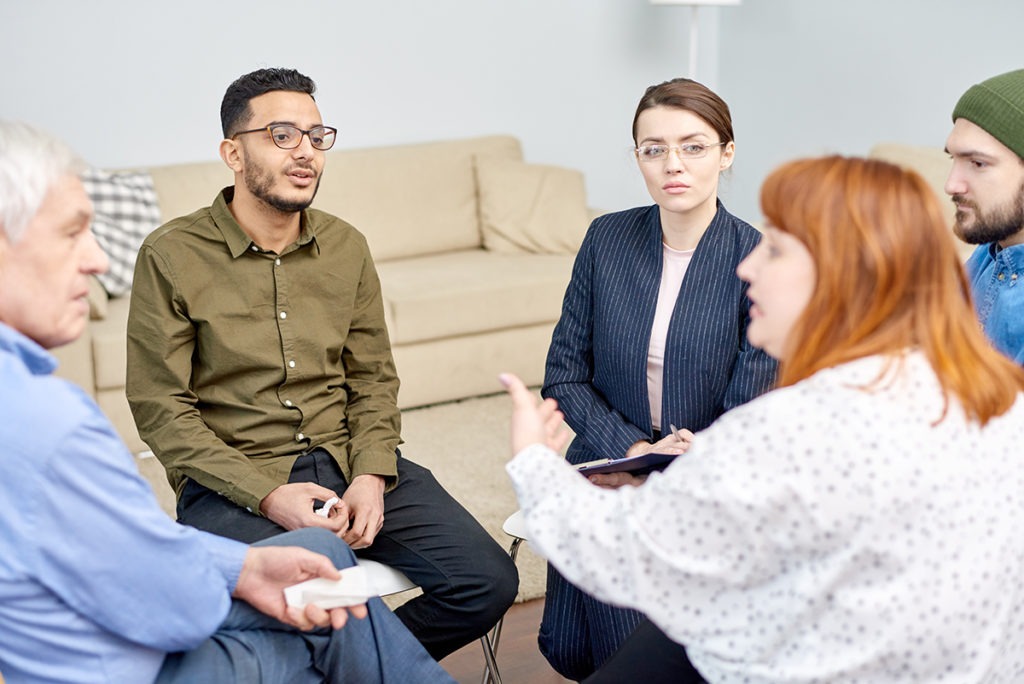When you’re recovering from addiction, the people who love you the most are probably very happy and relieved. Often they are so glad you’re sober that they want to do everything they can to help you on your recovery journey. Some may try to help you a little too much. You may find yourself asking the question, are your loved ones harming your addiction recovery?
The types of things your loved ones may try to do to help can vary. For example, they may study meeting lists and try to tell you where to go. They may reach out to your sponsor or sober friends. They may try to understand the 12 steps of Alcoholics Anonymous or Narcotics Anonymous and want to discuss them with you.
Good Intentions, Bad Results
The people who love you mean well. They mean to offer you complete support and encouragement. But in many cases, their hovering behavior has the opposite effect. You may end up feeling smothered and resentful. When loved ones try to dictate how many meetings you go to or even which meetings you go to, or when they express doubt that you can recover, you are likely to react in a negative way. You may even feel the urge to pick up a drink or a drug. If they try to pry your recovery out of you, it stops feeling like your recovery. You may feel like a subject in a science experiment.
Avoiding Blame and Excuses
Another way that friends or family members may make your recovery more challenging is by drinking around you or by encouraging you to have just one drink. They may try to tell you that you were never that bad, and question why you think you need to go to meetings. Or loved ones may tell you that you are going to too many meetings and that you aren’t spending enough time with them. In recovery, blame is a word that you can’t afford to have in your vocabulary.
Although you may feel like your loved ones are interfering in the recovery process and are possibly setting you up to fail, in the end your recovery is your responsibility. You have to be committed to recovering with or without their support. If you end up feeling shaky in your recovery or even craving a drink or a drug, the easy thing to do is blame someone else. Blaming loved ones who try to tell you how you should approach recovery is just a way of making excuses for what is not working in your sobriety.
Setting Boundaries, Finding Balance
Finding balance is often a challenge for people in recovery from substance abuse. There are a lot of different areas of life that may be competing for your attention. You may have a job and family responsibilities, and your recovery may include not only going to meetings, but going to counseling as well. You may also be striving for both physical and spiritual healing. At times it’s hard to know where your priorities should be.
When your loved ones are telling you that you aren’t putting enough time and attention into your family or other close relationships, or that in some way you aren’t approaching recovery in the right way, it may trigger guilt, anger or resentment. You may have to set boundaries involving your recovery and make clear to your loved ones that if you don’t make your own recovery the top priority in your life, you won’t be able to be there for them. Failure to take charge of your own recovery may cause you to go back to your old ways and have even less to contribute to your relationships. If your family resists your efforts to set boundaries, you may want to consider family counseling.
Putting Recovery First
For recovering alcoholics and drug addicts, recovery has to be the top priority in your life, because anything you put ahead of recovery you are likely to lose anyway. Those in recovery are reminded of this fact with the slogan “First Things First.” Whether your loved ones try to encourage or discourage your recovery efforts, they can’t have any control over whether you succeed. Your recovery is your own responsibility, and you have to stay focused on that at all times.
Are Your Loved Ones Harming Your Addiction Recovery?
The question “Are your loved ones harming your addiction recovery?” is challenging. Getting treatment doesn’t have to be. At Right Step, we treat many addictions, using a variety of therapy programs, including:
- Cognitive behavioral therapy
- Dialectical behavioral therapy
- Fitness therapy
- Family therapy
- Group therapy
Learn more about your treatment options when you call 17135283709 today.






